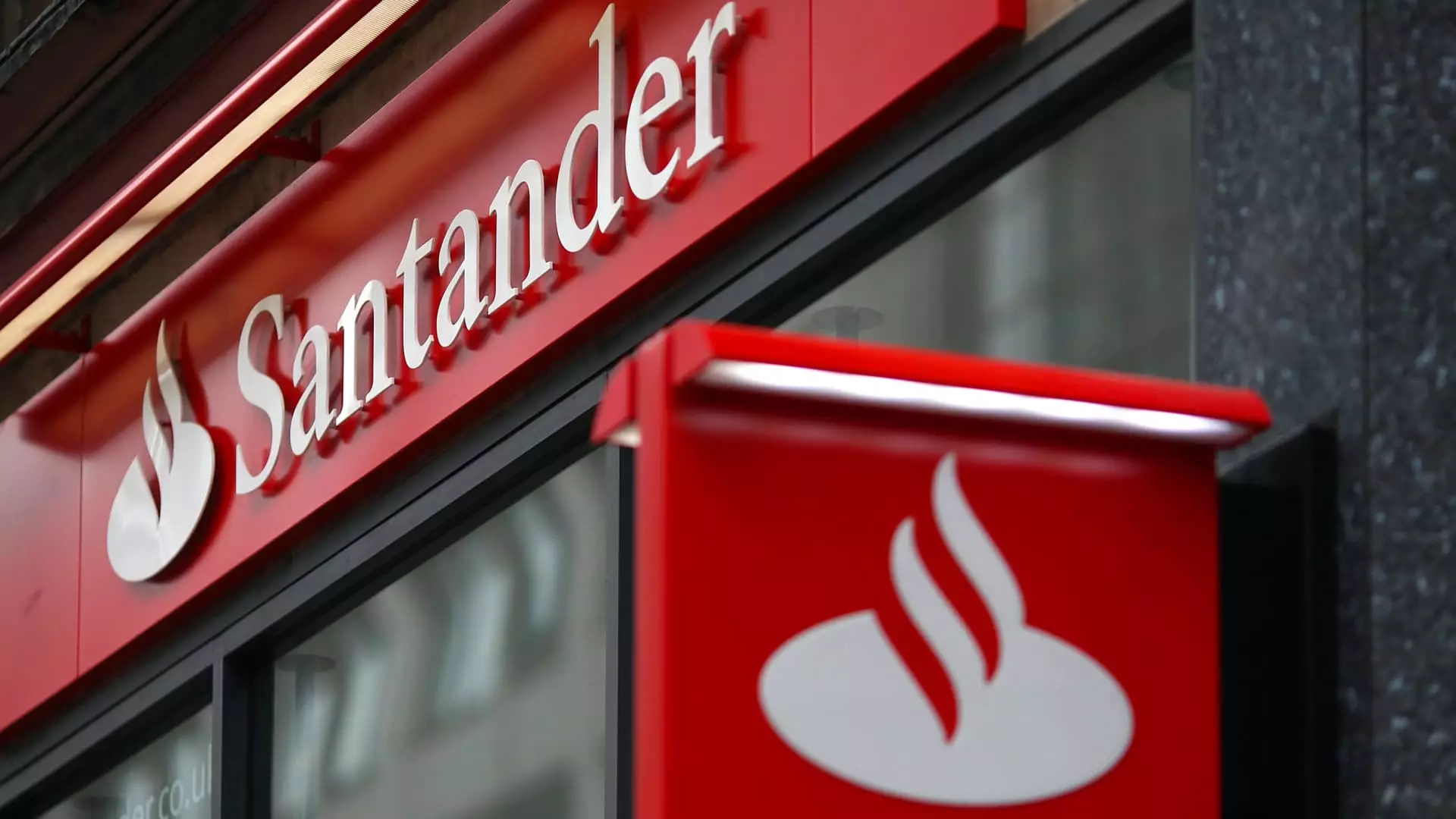Santander’s recent announcement to acquire TSB from Sabadell for a staggering £2.65 billion encapsulates a paradox at the heart of modern banking. On the surface, it appears as a calculated step to bolster its footprint in the U.K., boasting high returns and strategic diversification. However, beneath this veneer of confidence lies a deep-seated vulnerability that questions whether this bold maneuver is a sign of prowess or desperation. The bank’s leadership seems caught in a precarious balancing act—trying to project strength amidst a broader context of mounting economic uncertainty and declining profitability.
This acquisition, while seemingly promising on paper, raises critical doubts about Santander’s understanding of the market dynamics at play. The U.K. banking sector is notorious for its fierce competition, razor-thin margins, and a fragile economic outlook influenced by geopolitical tensions and domestic political instability. Rather than signaling a clear pathway to sustainable growth, Santander may be inadvertently doubling down on a flawed strategy rooted in aggressive expansion rather than prudent management. The move appears more like a rallying cry to shareholders than a well-considered response to market realities.
Questionable Value: Is This Acquisition a Strategic Insight or a Reckless Bet?
At first glance, acquiring TSB offers enticing financial metrics—an expected return on invested capital above 20% and a boost to return on tangible equity. But a closer look exposes the superficiality of such figures. The U.K. branch’s profits have been on a downward spiral, with pre-tax figures plummeting 38% last year. This decline signals systemic problems that cannot simply be papered over with acquisitions or new capital injections. It suggests that brave talks about stability and long-term commitment may be nothing more than lip service in an environment increasingly driven by cost-cutting and consolidation.
Moreover, Santander’s claimed commitment to the U.K. as a “high-quality, low-risk” market overlooks the real risks—the kind that threaten the bank’s survival if managed recklessly. The aspiration to reach a 16% return on equity by 2028 sounds ambitious but is increasingly suspect when the underlying profitability landscape remains shaky. Are these projections based on thorough strategic planning, or are they optimistic fantasies designed to soothe shareholders’ fears? The danger lies not only in overestimating the benefits of this acquisition but also in ignoring the potential fallout if the deal fails to generate the anticipated returns.
The Political and Economic Quicksand: A House Built on Sand?
The broader political landscape complicates Santander’s ambitions absurdly. The UK’s economic stability is under threat from Brexit uncertainties and fluctuating fiscal policies, making any large-scale investment inherently risky. Simultaneously, in Spain, the government’s cautious stance on Sabadell’s sale reflects deep-rooted political tensions, especially regarding Catalonia. There is an underlying political gamble that such massive banking consolidations could entail social unrest or job cuts that political authorities are keen to avoid.
Additionally, the ongoing saga involving BBVA’s hostile takeover bid reveals a complex web of corporate rivalry, nationalistic sentiment, and regulatory hurdles that jeopardize long-term strategic planning. The Spanish government’s recent restriction requiring a three-year separation in the event of a merger underlines how political considerations are often prioritized over stabilizing market forces. Santander’s move, in this context, might be seen as an effort to shield itself from these turbulent waters—yet such defensive strategies risk entrenching its position in a weakened and increasingly unpredictable environment.
The Middle Ground: Is Santander’s Shift a Cautionary Tale or a Center-Left Ideological Alignment?
From a center-wing liberal perspective, Santander’s aggressive expansion underscores an industry often driven by short-term shareholder gains at the expense of broader economic stability and social responsibility. There’s an urgent need for financial institutions to prioritize sustainable growth, community well-being, and a balanced approach to risk—principles seemingly abandoned in Santander’s high-stakes gambit.
On one hand, the bank’s emphasis on “risk-return” and “stability” aligns superficially with a responsible attitude in an unstable market. Yet, by choosing to double down on acquisitions amid declining profitability, Santander risks transforming itself into a symbol of reckless corporate ambition that disregards the social consequences, including potential job losses and regional economic destabilization.
While the bank claims its strategy aims to strengthen its presence and stabilize its portfolios, it hardly offers reassurance that such moves are motivated by long-term societal benefit rather than short-term profits. In a climate where economic inequality and regional tensions are escalating, this relentless pursuit of growth—without considering social impact—raises questions about the moral compass guiding corporate giants like Santander. A more responsible banking model would involve strategic retrenchment and reinvestment in community development, not reckless expansion designed mainly to pacify shareholders and appease investor expectations.
In essence, Santander’s latest move reflects both the perilous state of global banking—caught between economic vulnerability and corporate greed—and the urgent need for a more nuanced, socially responsible approach. It’s a sobering reminder that in the race for profits, banks risk losing sight of their role as stabilizers within society, not just short-term wealth generators.

